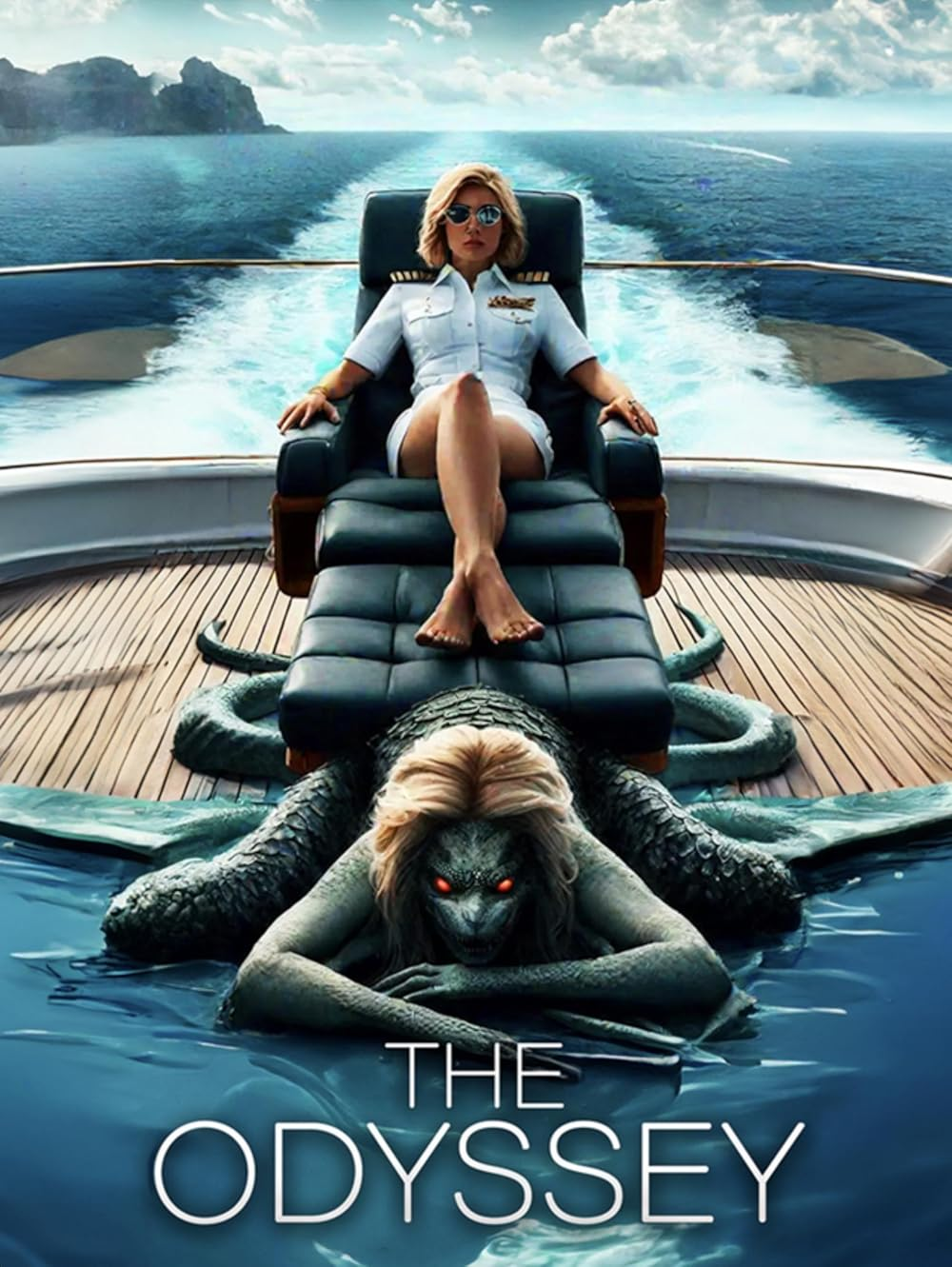At the heart of Western literature lies “The Odyssey,” an epic poem by Homer that has captivated audiences for nearly three millennia. This timeless tale chronicles the adventurous journey of Odysseus, a cunning hero whose quest for home resonates deeply with themes of perseverance and self-discovery. With the emergence of new adaptations, including a fresh translation by Daniel Mendelsohn and upcoming cinematic interpretations, the allure of this narrative continues to flourish. Scholars like Greg Nagy illuminate the importance of such literary works, highlighting the intricate layers of meaning embedded in Homeric poetry. For those familiar with the various “Odyssey” translations, exploring these adaptations can provide a nuanced understanding of the text’s enduring power and relevance today.
“The Odyssey,” a cornerstone of ancient literature, epitomizes the complexities of human experience through the adventures of its protagonist, Odysseus. This narrative not only encompasses themes of journey and return but also delves into the moral and existential questions faced by individuals in their quests. Various translations, such as those by Daniel Mendelsohn and others, shed new light on this classic saga, making it accessible to modern audiences. Academic insights from figures like Greg Nagy further enrich our understanding of this epic poem, emphasizing the cultural significance it has wielded for centuries. Engaging with these adaptations allows readers to appreciate the depth and artistry of Homer’s work while inviting personal reflection on their own life’s odysseys.
The Timeless Relevance of The Odyssey
Homer’s “The Odyssey” has transcended centuries and still resonates with contemporary audiences. This epic poem by the legendary poet reveals the struggles of Odysseus as he navigates his way back home after the Trojan War. In modern adaptations, such as the recent stage production at the American Repertory Theater and the upcoming film by Christopher Nolan, we witness how its themes of perseverance, the search for identity, and the concept of home remain relevant. The power of storytelling, exemplified in this epic journey, continues to inspire new generations to explore their own paths of self-discovery.
In addition to live performances and cinéma interpretations, various translations contribute to bringing “The Odyssey” to life. Scholars like Daniel Mendelsohn have revived interest in Homeric poetry through accessible translations that maintain the essence of the original Greek text. This accessibility bridges gaps between ancient and modern worlds, proving the storytelling can inspire personal journeys rich in lessons about resilience and the human experience.
Greg Nagy’s Insights on Homer and Epic Poetry
Greg Nagy, a distinguished classicist, shares profound insights about the historical significance of Homer in shaping epic poetry. He notes that the cultural evolution of poetic storytelling spans multiple eras, particularly through modalities of oral tradition that define ‘The Iliad’ and ‘The Odyssey’. As Nagy explains, Homer’s works encapsulate human experience and explore profound philosophical concepts, attracting readers interested in the literary brilliance of ancient Greece. His interpretations often reflect the socio-political contexts from which this poetry emerged, illustrating how these works continue to speak to the human condition through themes like honor, heroism, and the trials of life.
Nagy’s comments on the evolving nature of translations further enhance the appreciation of Homer’s masterpieces. He emphasizes the artistic merit found in various translations, from George Chapman’s 1616 version to modern renditions by Emily Wilson. As each translator navigates the balance between the original text’s fidelity and the emotional resonance, the rich tapestry of interpretations only serves to deepen our understanding of the epic, allowing new readers to engage with it in fresh, compelling ways.
The Enduring Appeal of Odysseus
Odysseus stands out as one of literature’s most compelling characters, embodying the archetype of the ‘trickster hero’. This fascination stems from his complexity—he is cunning, flawed, and deeply human. Scholars like Greg Nagy emphasize that this multifaceted nature contributes significantly to Odysseus’s appeal. Rather than fitting the mold of a traditional hero, his capacity for deception and moral ambiguity causes readers to question what makes a hero truly heroic. Each twist and turn in his journey invites audiences to explore the grey areas of morality, encouraging a deeper exploration of the human psyche.
Moreover, Odysseus’s journey is not exclusively physical; it is also profoundly psychological. The challenges he faces can be seen as metaphors for the internal struggles we all encounter in life. As Odysseus navigates temptation, betrayal, and personal loss, he reflects the universal quest for identity and purpose. This exploration of the ‘journey of the soul’ resonates with modern readers, reaffirming that the struggles depicted in “The Odyssey” are not relegated to ancient times but are eternally relevant.
Celebrating Diverse Translations of The Odyssey
The diversity of translations of “The Odyssey” enriches our understanding and appreciation of this epic poem. From George Chapman’s early version to contemporary translations by Emily Wilson, each brings unique perspectives and interpretations to the text. These translations serve not only as conduits to Homer’s original Greek but also as reflections of the times and cultures that produce them. Readers can witness the evolution of language, form, and expression as translator styles shape the narratives, making Homer’s work more accessible to wider audiences.
The volume of translations—over 100—also underscores the poem’s continual relevance. Each translator’s approach allows readers to engage with Odysseus’s journey in nuanced ways. For example, Wilson’s translation presents Penelope with remarkable complexity, showcasing her intelligence and agency, which resonates with contemporary feminist readings of the text. Such diverse interpretations draw attention to the richness of Homeric poetry and its ability to evoke fresh discussions about character dynamics, themes, and moral implications.
The Cultural Impact of The Odyssey in Modern Media
As we witness the resurgence of interest in “The Odyssey” across different media platforms, its cultural impact is undeniable. The upcoming film adaptation by Christopher Nolan represents a bridge between ancient literature and contemporary storytelling. By reinterpreting Homer’s epic, filmmakers pay homage to its timeless themes while also making it accessible to new audiences. This creative endeavor invites a dialogue about the narrative’s importance and encourages a broader appreciation of epic poetry within popular culture.
The adaptation of ancient texts into modern storytelling formats not only entertains but also educates viewers about historical narratives. By engaging with works like “The Odyssey”, audiences can explore themes of heroism, loyalty, and the human condition in ways that resonate with modern experiences. This form of cultural exchange revitalizes the narrative, showing that the lessons from Homer’s epic are continuously relevant and that storytelling remains a powerful vehicle for reflection and connection.
Understanding the Legacy of Homer and Epic Poetry
Homer’s legacy is one of unparalleled significance within the realm of epic poetry, laying the foundation for storytelling traditions that would inspire countless writers and poets throughout history. His unique narrative style, characterized by rich imagery and intricate character development, has set a standard for narrative art. As classicist Greg Nagy explains, Homer’s contributions extend beyond mere literature; they shape philosophical discourse, influencing how we perceive concepts of morality, fate, and human emotion.
The influence of Homer can be traced through the centuries, reflected in works that echo the structure, themes, and styles of epic poetry. Modern authors often borrow elements from the narratives established by Homer, demonstrating the timelessness of these stories. The ongoing study and celebration of “The Odyssey” and its themes reveal an enduring fascination with the epic form and its ability to encapsulate the complexities of human existence.
Odysseus: A Study in Complexity
The character of Odysseus serves as a focal point for discussions around complexity in literary heroes. Often seen as a quintessential hero, he displays traits that challenge traditional notions of heroism. His cunning nature, ability to bend rules, and sometimes morally ambiguous choices invite readers to reconsider their definitions of a hero. As Nagy suggests, Odysseus embodies the idea that wisdom can come from failure; his journey showcases the lessons learned through struggles and resilience, making him a relatable figure in the modern world.
This depth of character allows for various interpretations and analyses, wherein Odysseus symbolizes the duality of human nature. As readers engage with his clever tactics and vulnerabilities, they are prompted to reflect on their journeys and the various facets of their identities. Additionally, Odysseus’s interactions with other characters provide insight into themes of loyalty and betrayal, compelling readers to explore these dynamics in their own lives and relationships.
Penelope and the Role of Women in The Odyssey
Penelope stands as an important figure in “The Odyssey,” representing strength, fidelity, and intelligence. In contrast to Odysseus’s physical journey, her waiting and strategizing underscore the themes of patience and agency in the face of uncertainty. Penelope’s cunning, particularly evident in the way she deals with her suitors, illustrates the resourcefulness women held in Homeric society. As scholars and modern translators like Emily Wilson portray her character, readers gain insight into women’s active roles within the narrative, elevating her status from a passive figure to a protagonist in her own right.
Through Penelope’s steadfastness, readers learn about resilience and adaptability, traits that are just as vital today as they were in ancient times. Her intelligence and ability to navigate societal expectations challenge traditional gender roles and provide a rich ground for discussions surrounding feminism in literature. As contemporary audiences reassess her character, Penelope emerges as a symbol of empowerment, encouraging readers to appreciate the nuanced portrayals of women in epic poetry and literature overall.
Lessons from The Odyssey: A Journey of the Soul
The journey of Odysseus is not merely a physical quest but also a profound exploration of the self. The Homeric epic showcases the trials and tribulations that come with seeking one’s identity and purpose. As Greg Nagy emphasizes, each encounter and setback serves as a metaphor for personal growth and enlightenment. Readers are invited to reflect on their own journeys, recognizing that the path to self-discovery is often fraught with challenges that demand courage, resilience, and introspection.
Additionally, the epic highlights the importance of learning from experiences, regardless of their outcomes. Odysseus’s journey encourages readers to embrace their own narratives, acknowledging that failures and detours can lead to enlightenment. “The Odyssey” serves as a timeless reminder that the journey is essential to understanding oneself, and through this lens, readers can find personal meaning within its epic verses.
Frequently Asked Questions
What is the significance of Homer in ‘The Odyssey’?
‘The Odyssey’ is attributed to Homer, a legendary figure in epic poetry whose works have influenced literature for millennia. His storytelling techniques and characterizations in ‘The Odyssey’ enable readers to explore profound themes of heroism, identity, and human experience.
How does Daniel Mendelsohn’s translation of ‘The Odyssey’ differ from others?
Daniel Mendelsohn’s translation of ‘The Odyssey’ is praised for its elegant and contemporary language, making Homer’s epic poetry accessible to modern readers. Unlike other translations, Mendelsohn emphasizes the psychological depth of characters, bringing fresh insights into the narrative.
What makes Odysseus a compelling character in ‘The Odyssey’?
Odysseus is considered a compelling character in ‘The Odyssey’ due to his complexity as a trickster hero. His cunning nature, coupled with his flaws and resilience during his ten-year journey home, resonates with readers, reflecting the intricacies of the human condition.
What themes are explored in Homer’s ‘The Odyssey’?
Homer’s ‘The Odyssey’ explores themes such as the journey of self-discovery, the struggle for identity, and the concept of homecoming. It delves into human emotions and ethical dilemmas, making it an enduring work in classical literature.
How has ‘The Odyssey’ been adapted in modern culture?
‘The Odyssey’ has been adapted in various forms in modern culture, including stage productions like the recent one by A.R.T., films, and new translations, notably by Daniel Mendelsohn. These adaptations reflect the poem’s timeless nature and its influence on contemporary storytelling.
What role do female characters play in ‘The Odyssey’?
Female characters in ‘The Odyssey,’ especially Penelope and Athena, play crucial roles that highlight themes of loyalty, intelligence, and strength. Penelope’s cleverness and resilience against suitors, alongside Athena’s guidance of Odysseus, emphasize the significant influence women have within the epic.
Which translation of ‘The Odyssey’ should I read?
Choosing a translation of ‘The Odyssey’ depends on your preferences. George Chapman’s version is historically significant, while Emily Wilson’s translation offers a modern, feminist perspective. Each translation has its unique style, so it’s worth exploring a few to see which resonates with you best.
What does Greg Nagy say about Odysseus as a trickster in ‘The Odyssey’?
Greg Nagy describes Odysseus in ‘The Odyssey’ as a trickster hero who challenges societal norms. Odysseus’s ability to navigate complex situations and violate conventions reveals deeper truths about human nature and societal rules, making him a fascinating figure in epic poetry.
What lessons can readers take away from Homer’s ‘The Odyssey’?
Readers can learn about the importance of perseverance, the complexity of human experiences, and the essence of home and identity in Homer’s ‘The Odyssey.’ The poem encourages a personal journey of reflection and understanding, inviting readers to consider their own ‘journeys of the soul.’
How is Penelope portrayed in ‘The Odyssey’?
In ‘The Odyssey,’ Penelope is portrayed as a clever and resourceful character. Her intelligence and loyalty towards Odysseus, coupled with her strategic thinking to outwit the suitors, showcase her as a strong female figure in Homeric literature.
| Key Point | Details |
|---|---|
| Enduring Appeal | The Odyssey has remained relevant for nearly 3,000 years, with new adaptations like the A.R.T.’s production and a film by Christopher Nolan. |
| Translations | There have been over 100 translations, with notable ones by George Chapman, Emily Wilson, and Robert Fagles. |
| Character of Odysseus | Odysseus is seen as a ‘trickster’ hero, embodying both cunning and flaws, making him a complex and fascinating character. |
| Favorite Character | Penelope is highlighted for her intelligence and resilience, often outsmarting others, including Odysseus. |
| Themes | The Odyssey explores the concept of the ‘journey of the soul,’ inviting readers to reflect on their own lives. |
Summary
The Odyssey continues to captivate audiences with its timeless themes and complex characters. This epic tale by Homer not only highlights the adventures of Odysseus but also reflects on the journey of the soul that resonates deeply with readers. Through new translations and adaptations, the significance of The Odyssey endures, inspiring fresh interpretations and ongoing discussions about the human experience.



